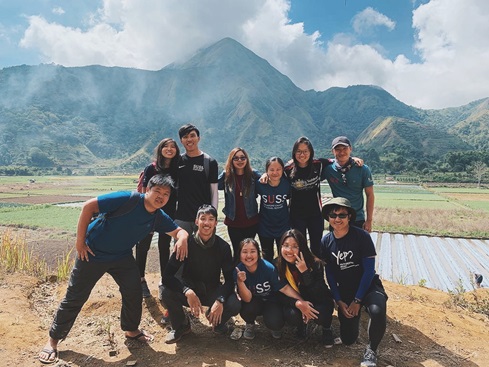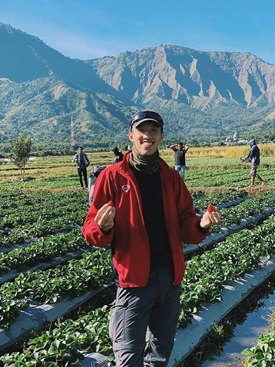
Earlier this June, a group of SUSS full-time students embarked on a service-learning trip to Lombok, Indonesia, in a bid to help nature through ecological restoration. David Cho, a Year 2 Bachelor of Science in Business Analytics with Minor student, who was also the Secretary of Youth Expedition Project (YEP) CREST Lombok, documented their 15-day journey. Read more below.

I was one of two secretaries assisting the team leader in handling pre-trip documentation for Project CREST (Lombok), as well as assisting in organising and ensuring a smooth flow of events during the course of the project. We were blessed to have IUVA Global come along with us to ensure that our trip was smooth and enriching.
The first segment of the trip was at Labuan Pandan, east Lombok. It was here that we worked with Komunitas Pemuda Labuan Pandan Kreatif (KOMPAK) to focus on coastal habitat restoration in the local mangrove and coral reef ecosystem. The students were split into groups of two or three, and assigned to a homestay. The first four days were spent preparing concrete blocks that were to be used for coral transplantation, Bahasa Indonesia lessons from the locals, mangrove nursery work and financial literacy workshops conducted by our students.
Up next was a three-days two-nights stayover at Gili Petagan, an uninhabited island. The main focus here was to plant a new patch of mangrove seedlings as well as transplant corals on the seabed. To end off this segment in Labuan Pandan, the students cooked a local dish, "orh nee", for our Indonesian counterparts, and also helped in preparing the final dinner with our hosts.
The next segment of the trip had us travel westward to Sembalun, a village in central Lombok. We met up with Komunitas Bajang Sembalun Kreatif (KBSK), a social enterprise that runs Sekolah Alam Rinjani (SAR), a nature school. The main focus in Sembalun was to impart basic management theories in terms of operations management.
The most impactful activity was witnessing a healthy coral ecosystem - the result of transplantation done by previous groups. Before I went for the trip, I was skeptical about the effect that a small student group could bring to the coastal habitat. But after seeing the dense corals that were planted by previous students teeming with sea life, it cemented my faith in what we were striving to achieve.
The immediate priority would be to participate in local environment sustainability projects like WILDSxMarines Singapore, where we will work with NParks on mangrove reforestation efforts in Sungei Buloh Wetland Reserve.
The long-term plan would be to recruit like-minded students and active volunteers to sustain Project CREST (Lombok) in the foreseeable future. The key to environmental sustainability is being consistent in our efforts. Once we build that consistency, we can start diversifying into other areas of environment sustainability.